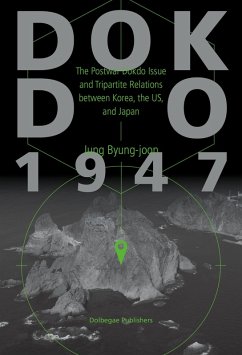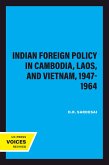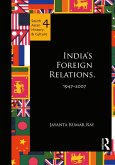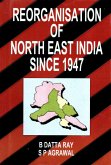1947 was a watershed year for the Dokdo issue.
Many think that the differences between Korea and Japan over the historical title to the island are what caused the Dokdo issue. From my studies, however, I came to learn that the Dokdo issue is a ramification, or one of the shadows, of the sway and decision power the U.S. exerted on the post-war policies for Northeast Asia. Therefore, it would be more accurate to say that the dispute over the sovereignty of Dokdo after the Second World War involves the U.S. as well and that it is a matter of regional and international politics rather than that of history.
\"The idea for this book came about in 2001 when I was studying the U.S. State Department's diplomatic documents from the 1950s in the National Archives and Records Administration. The records were telling a different story from what average Koreans know about Korea-Japan relations and the Dokdo issue. Although much of the documents about Korea-Japan relations and the Dokdo issue were still classified, I was able to see that the 1951 Treaty of San Francisco was the starting point of, as well as a turning point for, the U.S. policies and diplomatic decisions on Dokdo. So I started delving into the archives of the U.S., Japan, Korea, and the UK. I looked into how the San Francisco Treaty-which officially settled the war between Japan and the U.S.-led Allies-relates to Korea and how it became a turning point for Korea-Japan relations, Korea-U.S. relations, and U.S.-Japan relations. I found myself on a journey of exploring how the San Francisco system shaped the new post-war order in Northeast Asia; how Korea, the U.S., Japan, and the UK viewed and responded to Japan's territorial issues including that of Dokdo; and how Korea-U.S. relations, U.S.-Japan relations, and Korea-Japan relations had changed over the years.
This book is a summary of what I learned during my journey, and it delineates how and when Korea, the U.S., and Japan began introducing policies, as they became more aware of Dokdo after the Second World War, and how these policies evolved before and after the San Francisco Treaty.\" (_ Excerpt from the Preface)
Many think that the differences between Korea and Japan over the historical title to the island are what caused the Dokdo issue. From my studies, however, I came to learn that the Dokdo issue is a ramification, or one of the shadows, of the sway and decision power the U.S. exerted on the post-war policies for Northeast Asia. Therefore, it would be more accurate to say that the dispute over the sovereignty of Dokdo after the Second World War involves the U.S. as well and that it is a matter of regional and international politics rather than that of history.
\"The idea for this book came about in 2001 when I was studying the U.S. State Department's diplomatic documents from the 1950s in the National Archives and Records Administration. The records were telling a different story from what average Koreans know about Korea-Japan relations and the Dokdo issue. Although much of the documents about Korea-Japan relations and the Dokdo issue were still classified, I was able to see that the 1951 Treaty of San Francisco was the starting point of, as well as a turning point for, the U.S. policies and diplomatic decisions on Dokdo. So I started delving into the archives of the U.S., Japan, Korea, and the UK. I looked into how the San Francisco Treaty-which officially settled the war between Japan and the U.S.-led Allies-relates to Korea and how it became a turning point for Korea-Japan relations, Korea-U.S. relations, and U.S.-Japan relations. I found myself on a journey of exploring how the San Francisco system shaped the new post-war order in Northeast Asia; how Korea, the U.S., Japan, and the UK viewed and responded to Japan's territorial issues including that of Dokdo; and how Korea-U.S. relations, U.S.-Japan relations, and Korea-Japan relations had changed over the years.
This book is a summary of what I learned during my journey, and it delineates how and when Korea, the U.S., and Japan began introducing policies, as they became more aware of Dokdo after the Second World War, and how these policies evolved before and after the San Francisco Treaty.\" (_ Excerpt from the Preface)
Dieser Download kann aus rechtlichen Gründen nur mit Rechnungsadresse in A, B, BG, CY, CZ, D, DK, EW, E, FIN, F, GR, H, IRL, I, LT, L, LR, M, NL, PL, P, R, S, SLO, SK ausgeliefert werden.









